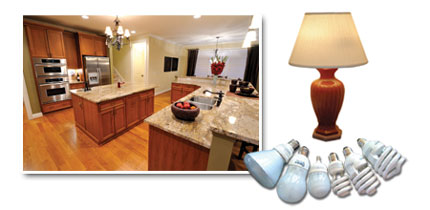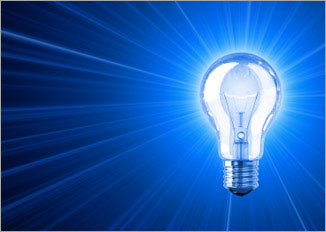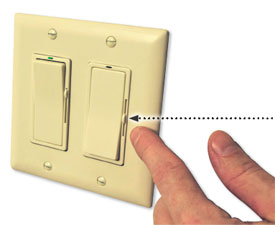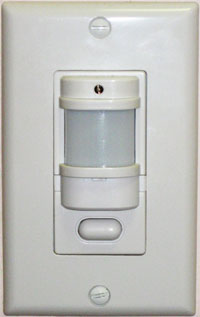In Business Since | License #
In Business Since | License #


There's a lot to like about the original energy-efficient light source: inexpensive, zero electricity use, excellent portability, and a breeze to turn off. It's a good thing that most households still keep candles on hand. But it's also good that we've developed artificial light in many forms.
We depend so much on lamps and light fixtures that lighting accounts for 15% of a typical household electric bill. The good news here is that by taking advantage of the latest lighting technology, you can reduce your lighting bill by 50%-75%. That's major savings.
Changing to compact fluorescent lights (CFLs) and, when technology catches up, LED lights, are some methods to save on lighting costs.

Thomas Edison once said he didn't fail 10,000 times at inventing the light bulb. He simply learned 10,000 ways how not to make a light bulb before successfully accomplishing one of the most important inventions of the 20th century.
What's good for your house is also good for the country. There's a lot at stake when it comes to saving energy on lighting. If every household in the U.S. switched to energy efficient lighting, we'd save enough electricity to shut down 90 power plants! And in a single year, our reduction of greenhouse gas emissions would be like taking 800,000 cars off the road.
Kicking the (old) can. Recessed "can" lights are very popular, and most homes have at least some of these ceiling lights in one part of the home or another. The trouble with recessed lights is that they waste energy in several ways:
Dr. Energy Saver will evaluate your can lights as part of an overall home energy checkup. If your existing can lights are wasting energy in any of these ways, it may make sense to replace them with more efficient fixtures.

A dimmer switch can save you energy by allowing ceiling and wall-mounted lights to operate at lower power levels.
Replacing your standard wall-mounted light switch with a dimmer switch can save you energy by allowing you to operate ceiling and wall-mounted lights at lower power levels. Dimmers also help your light bulbs last longer. Of course another benefit is the control you gain over adjusting the mood of a room simply by moderating your light levels.
Dr. Energy Saver can assess your lighting to see if dimmers would save electricity while providing useful control of light levels in different parts of your house. Since CFLs are now available in dimmable versions, you can save electricity and have adjustable light levels as well.

This indoor motion sensor remembers to turn out the light.
How many times have you walked through your house and found the lights on in a room that no one was using? A motion sensing light switch allows your light to automatically turn on when someone enters the room. After a preset period of time, if no further motion is sensed the switch automatically turns off the light. In addition to saving energy, motion sensing switches provide "hands-free" switching convenience that's useful in certain situations. Dr. Energy Saver can help you decide which areas of your home can benefit the most from motion sensing controls.
"Did I leave the outdoor lights on all day again?" To eliminate this energy-wasting mistake, Dr. Energy Saver can install dusk sensor controls on some or all of your outdoor lights. This light-sensitive circuitry can be integrated into a light fixture, or available as a retrofit for existing lights. Dr. Energy Saver can help you select which type of dusk-sensing control is best for your house. In either case, once this improvement is made, you never have to worry about turning on outdoor lights every night, or turning them off again in the morning.
Looking for a price? Get a no cost, no obligation free estimate.